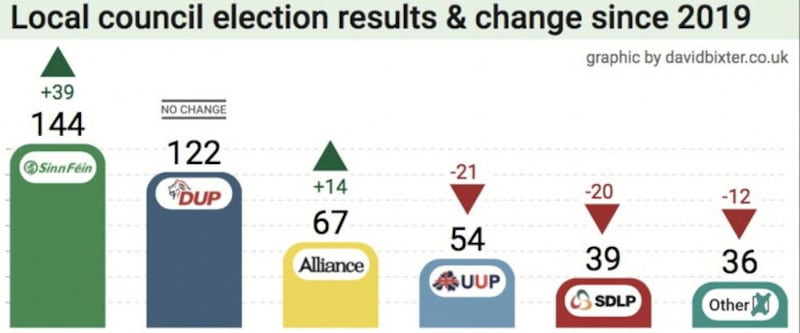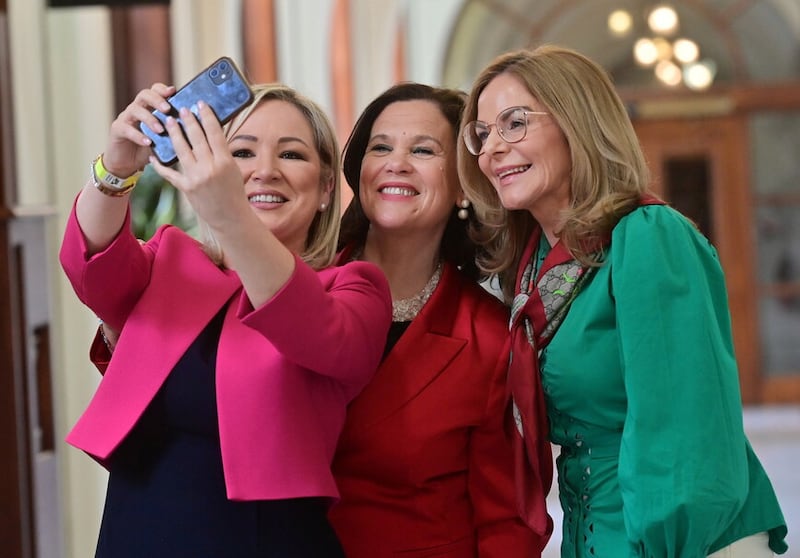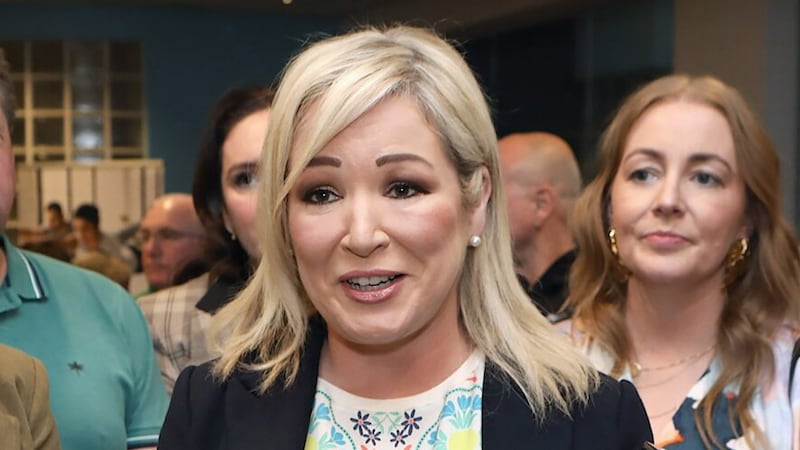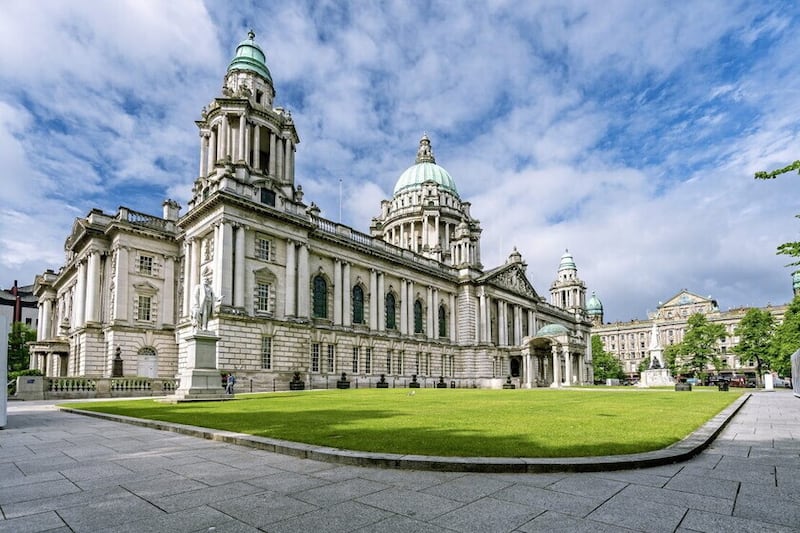Calls for clarification on the conditions for a border poll are expected to intensify after nationalism outpolled unionism for the first time in Thursday's local government election.
Pro-unity parties, including People Before Profit, received 308,624 votes compared to unionism's 281,196 – a lead of more than 27,000.
The election saw Sinn Féin become the largest party in local government with 144 seats, an increase of 39 compared to 2019.
The party secured 30.9 per cent of first preference votes, more than seven points ahead of the DUP.
The DUP's seat tally remained stable at 122, while Alliance grew its council representation to 67.
The outcome for the SDLP and Ulster Unionists was disappointing, with each losing 20 and 21 seats, respectively.

Writing in The Irish News today, commentator Chris Donnelly says every election since 2017 has "repeatedly demonstrated the strength of the pro-Irish unity constituency".
"There is now an overwhelming case for a border poll in the short to medium term," he says.
"Denying the evidence is no longer an acceptable reaction, however daunting that may appear to be. The imperative now must be on the Irish government to recognise the significance of what is happening and prepare the ground for what must be done."

Unionist commentator Alex Kane described nationalism's gain over unionism as "significant, politically and psychologically".
However, psephologist Nicholas Whyte believes the conditions for border poll, as vaguely set out in the Northern Ireland Act 1998, have yet to be met.

"This was an election for local government and the lead isn't significant enough yet," he told The Irish News.
"I think the difference needs to be bigger and the numbers constantly monitored."
The British government has consistently refused to clarify the conditions that would trigger a referendum on Irish unity.
Last year, Alliance leader Naomi Long said it would "be helpful" for the secretary of state to set out the conditions under which a border poll could take place.
Meanwhile, in the aftermath of Thursday's election, Michelle O'Neill called on the British and Irish governments to deliver a plan to restore the Stormont institutions.
The Sinn Féin deputy leader said there now needed to be an urgent meeting of the British-Irish Intergovernmental Conference to plot a route to restore the assembly.
"It is not a tolerable situation, there shouldn't be any more delays and I want to see a plan on the table as to how we are going to get back around the table to make politics work and to have a locally elected assembly," she told RTÉ.








